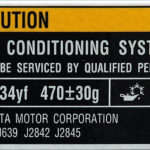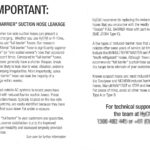
World’s second-largest carmaker commits to R744 as AC refrigerant German automotive giant Volkswagen Group hit the headlines in March when it confirmed its pursuit of carbon dioxide as an air conditioning refrigerant as part of a plan to become the world’s most environmentally sustainable carmaker by 2018. According to German newspaper Frankfurter Rundschau, VW Group … Continue reading CO2 refrigerant for VW Group










